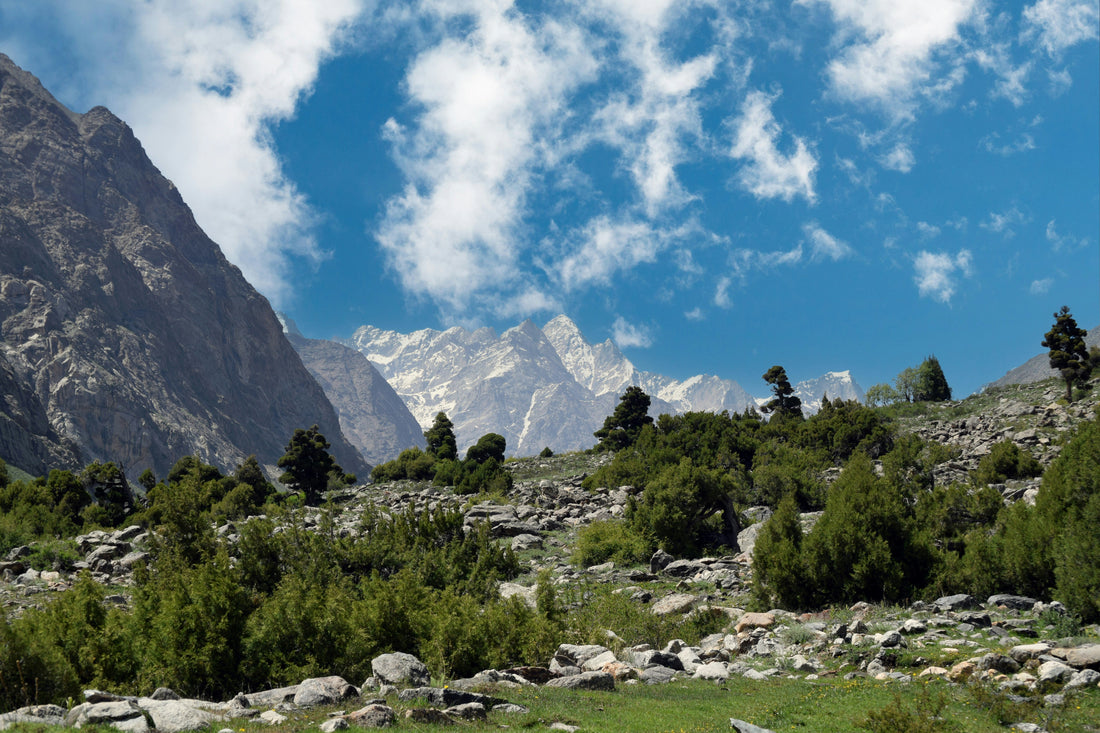
Tourmalines from Afghanistan: A Sustainable Treasure in the Global Gem Trade
Share
In the evolving world of coloured gemstones, few varieties have captured the attention of collectors, jewellers, and investors quite like the tourmalines from Afghanistan. These vibrant, natural stones are not only stunning in hue and clarity—they also represent a deeper story of craftsmanship, cultural continuity, and sustainable potential. At Lisbon Gem Exchange, we are proud to work directly with Afghan miners and communities, bringing this heritage-rich resource to the global market with integrity and care.
Why Tourmalines from Afghanistan Matter
Afghanistan's Nuristan and Laghman provinces are globally recognised for producing some of the most exquisite and rare tourmalines available. Known for their rich greens, electric blues, and saturated pinks, these stones are not mass-produced—they are unearthed by artisanal miners using traditional methods honed over generations. What sets Afghan tourmalines apart is not just their aesthetic, but the human hands and stories behind them.
According to Gemval, the market value of tourmalines continues to grow steadily, driven by increasing demand for coloured gemstones with traceable provenance. This positions tourmalines from Afghanistan as not only beautiful artefacts of nature but also smart and ethical investments.
Sustainability in Artisanal Mining
While artisanal mining supports local economies, it often lacks the infrastructure to mitigate environmental degradation. Practices like unregulated excavation, unmanaged runoff, and forest clearing can threaten both ecosystems and the long-term viability of the trade. However, when managed responsibly, small-scale mining can become a force for conservation and empowerment.
At Lisbon Gem Exchange, we are committed to fostering environmentally sustainable mining practices among our Afghan partners. This includes promoting methods such as land restoration, responsible water usage, and site rehabilitation. The University of Vermont’s research on sustainable mining highlights that when local knowledge is combined with practical conservation strategies, artisanal mining can minimise its ecological footprint while preserving cultural techniques.
We work with miners directly, providing support for adopting best practices that help both the land and the livelihood of those who depend on it. Learn more about our ethical approach on our sustainability page.
The Market Shift Toward Ethical Sourcing
Consumers today are no longer satisfied with anonymous supply chains. Increasingly, luxury buyers want to know where their stones come from—and under what conditions they were mined. This shift is reflected in the emerging standards from organisations such as SCS Global Services, which now offer certification for responsibly sourced coloured gemstones.
These ethical priorities align perfectly with the Lisbon Gem Exchange model: we source directly from miners, ensure fair compensation, and work exclusively with natural, untreated gemstones. Our collection of Afghan tourmalines offers clients a transparent and meaningful connection to the source.
A Symbol of Responsible Luxury
The rise in popularity of coloured gemstones among younger, sustainability-minded consumers means that the demand for traceable and ethically mined stones is surging. The Coloured Gemstone Market Research Report projects the global coloured gemstone market will exceed $12 billion by 2032, with premium growth tied to ethically sourced stones.
Designers, too, are increasingly choosing materials that align with their values. Jewellery created with Afghan tourmalines tells a story—not just of geological beauty, but of ethical collaboration between miners, cutters, exporters, and creatives. Lisbon Gem Exchange connects this full circle.
Visit our about page to explore how our philosophy shapes our partnerships and our gemstones.
A Future Built on Tradition
The human element behind tourmalines from Afghanistan cannot be overlooked. Miners in regions like Nuristan often work without formal protections or access to international markets. Their livelihoods depend on fragile yet resilient local economies, deeply rooted in tradition. We believe these voices deserve a place in the global luxury conversation.
A report by The Resident confirms that ethical jewellery isn’t a trend—it’s becoming the standard. Consumers are seeking transparency, heritage, and responsibility, especially in an age when luxury is increasingly defined by values rather than excess.
At Lisbon Gem Exchange, our mission is to elevate these traditions. By sourcing directly from Afghan mines and supporting local communities, we help preserve artisanal expertise and bring it to the forefront of high-end jewellery design. Through our curated selection of ethically sourced tourmalines, we offer a model of trade where beauty, integrity, and sustainability coexist.
Tourmalines from Afghanistan are more than gemstones. They are testaments to resilience, tradition, and a future-oriented vision of ethical commerce. With Lisbon Gem Exchange, clients gain access to this rare value—stones with meaning, sourced with care.
Let your next gem tell a story that matters.



